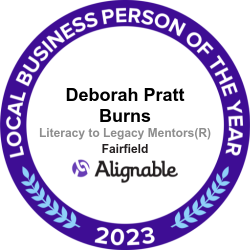Student Loans: Three Things College Seniors Need to Know

It Best to Start Thinking About Student Loan Repayment Now
by Jodi Okun
If you are a college senior, things are starting to get pretty serious for you right now. You will be graduating in the next few months, you are trying to find a job, you may be considering marriage, and now you really have to pay attention to that elephant in the room – your student loans. First of all, take a moment and congratulate yourself for your achievement, and then follow these three tips to help get yourself ahead of the student loan repayment game:
- Six Months Isn’t as Long as You Think It Is: Most student loans have a grace period of six months after graduation before you have to begin making payments. On one hand, that can seem like an awfully long time. But, with summer and everything else you have to do, six months can go by faster than you would believe. It’s best to start getting your information together now so you can make smart financial decisions instead of being forced to just take what is offered down the road.
- It is Hard, But It Is Always Best to Repay Your Loans: You might have heard about people who don’t make payments on their student loans, but what you don’t necessarily hear is how this affects the rest of their lives. Failure to pay will show up on your credit report and you could end up getting a constant barrage of calls and letters from debt collectors. You might not be able to borrow money without a co-signer, which could impact your ability to buy a car or home when you’re ready. The government can even garnish your wages, or take back your federal tax refund, if you owe any kind of balance on your federal student loans. Start thinking about a plan now so you won’t be under too much pressure in six months.
- There are Some Strategies Which Can Make It Easier to Repay Student Loans: If you are continuing your college career, you might be eligible for a loan deferment which will delay repayment of your principal and interest. With certain types of loans, the government will continue to pay the interest while you are in school, but interest will continue accruing on unsubsidized loans. Loan forbearance allows you to stop making payments for a short period of time, but interest will still accumulate. If you have amassed several loans, you may want to consider loan consolidation. This allows you to roll all of your federal loans into one loan and all of your private student loans into one. It could end up extending the payment period, and may cost more money in the long run, so be sure you understand everything your loan consolidation entails. There are even certain types of jobs in the teaching, medical and public service professions which would entitle you to loan cancellation after you make payments on your federal student loans for ten years. Your loan cannot be in default at the time you request a cancellation and discharge.
So congratulations on your graduation – you’ve worked hard and made smart decisions to get into and graduate from college. Now that you are moving on to the next phase of your life, continue making those smart choices and pay attention to the student loans you have accumulated. Talk to your financial aid office or a professional college financial aid advisor to come up with a plan that is best for you.



